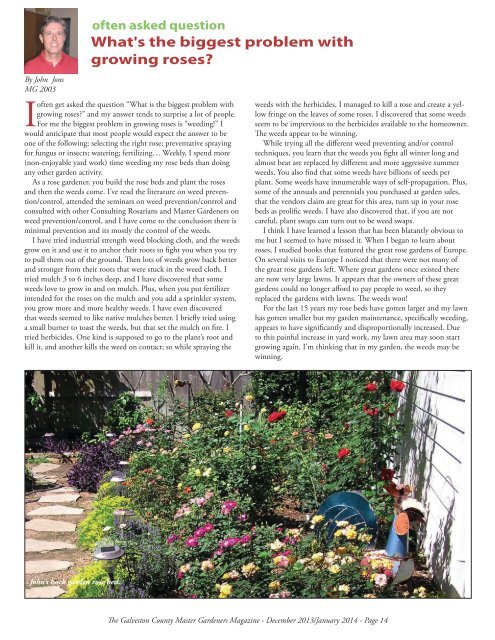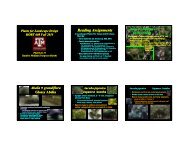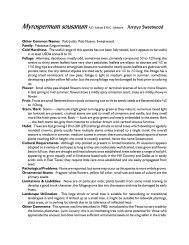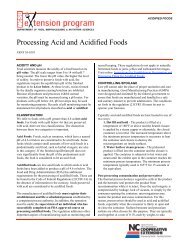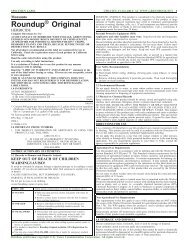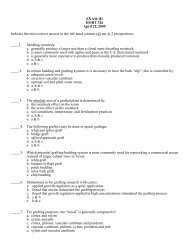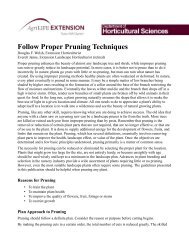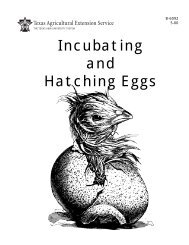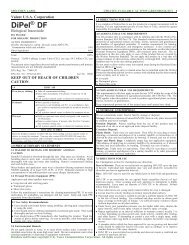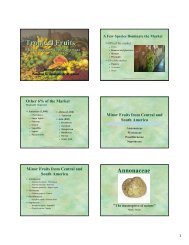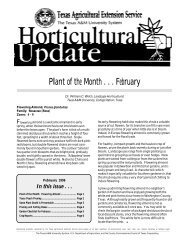Bulb Gardening - Aggie Horticulture - Texas A&M University
Bulb Gardening - Aggie Horticulture - Texas A&M University
Bulb Gardening - Aggie Horticulture - Texas A&M University
Create successful ePaper yourself
Turn your PDF publications into a flip-book with our unique Google optimized e-Paper software.
often asked questionWhat's the biggest problem withgrowing roses?By John JonsMG 2003Ioften get asked the question “What is the biggest problem withgrowing roses?” and my answer tends to surprise a lot of people.For me the biggest problem in growing roses is “weeding!” Iwould anticipate that most people would expect the answer to beone of the following: selecting the right rose; preventative sprayingfor fungus or insects; watering; fertilizing… Weekly, I spend more(non-enjoyable yard work) time weeding my rose beds than doingany other garden activity.As a rose gardener, you build the rose beds and plant the rosesand then the weeds come. I’ve read the literature on weed prevention/control,attended the seminars on weed prevention/control andconsulted with other Consulting Rosarians and Master Gardeners onweed prevention/control, and I have come to the conclusion there isminimal prevention and its mostly the control of the weeds.I have tried industrial strength weed blocking cloth, and the weedsgrow on it and use it to anchor their roots to fight you when you tryto pull them out of the ground. Then lots of weeds grow back betterand stronger from their roots that were stuck in the weed cloth. Itried mulch 3 to 6 inches deep, and I have discovered that someweeds love to grow in and on mulch. Plus, when you put fertilizerintended for the roses on the mulch and you add a sprinkler system,you grow more and more healthy weeds. I have even discoveredthat weeds seemed to like native mulches better. I briefly tried usinga small burner to toast the weeds, but that set the mulch on fire. Itried herbicides. One kind is supposed to go to the plant’s root andkill it, and another kills the weed on contact; so while spraying theweeds with the herbicides, I managed to kill a rose and create a yellowfringe on the leaves of some roses. I discovered that some weedsseem to be impervious to the herbicides available to the homeowner.The weeds appear to be winning.While trying all the different weed preventing and/or controltechniques, you learn that the weeds you fight all winter long andalmost beat are replaced by different and more aggressive summerweeds. You also find that some weeds have billions of seeds perplant. Some weeds have innumerable ways of self-propagation. Plus,some of the annuals and perennials you purchased at garden sales,that the vendors claim are great for this area, turn up in your rosebeds as prolific weeds. I have also discovered that, if you are notcareful, plant swaps can turn out to be weed swaps.I think I have learned a lesson that has been blatantly obvious tome but I seemed to have missed it. When I began to learn aboutroses, I studied books that featured the great rose gardens of Europe.On several visits to Europe I noticed that there were not many ofthe great rose gardens left. Where great gardens once existed thereare now very large lawns. It appears that the owners of these greatgardens could no longer afford to pay people to weed, so theyreplaced the gardens with lawns. The weeds won!For the last 15 years my rose beds have gotten larger and my lawnhas gotten smaller but my garden maintenance, specifically weeding,appears to have significantly and disproportionally increased. Dueto this painful increase in yard work, my lawn area may soon startgrowing again. I'm thinking that in my garden, the weeds may bewinning.John’s back garden rose bed.The Galveston County Master Gardeners Magazine - December 2013/January 2014 - Page 14


